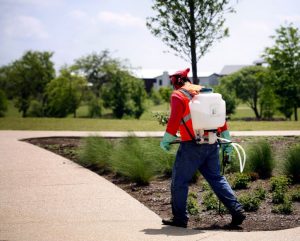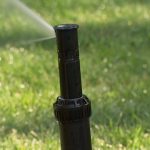Weed Control
 Everything seems to be growing in Seattle! This is a great time of the year to focus on controlling weeds before they become out of control. Hand-picking weeds can not only be time-consuming but also taxing on the back and legs. The use of herbicides is a great way to kill weeds efficiently and effectively. Dead weeds can then be knocked down by a weed wacker or mower. It can be intimidating choosing the right product for weed control. To choose the correct herbicide, it’s helpful to understand some basic terms that appear on the labels of commercially-packaged weed control products. We try to break it down for you here! (Organic more your thing? read below!)
Everything seems to be growing in Seattle! This is a great time of the year to focus on controlling weeds before they become out of control. Hand-picking weeds can not only be time-consuming but also taxing on the back and legs. The use of herbicides is a great way to kill weeds efficiently and effectively. Dead weeds can then be knocked down by a weed wacker or mower. It can be intimidating choosing the right product for weed control. To choose the correct herbicide, it’s helpful to understand some basic terms that appear on the labels of commercially-packaged weed control products. We try to break it down for you here! (Organic more your thing? read below!)
- Pre-Emergent herbicides work by preventing seed germination, so they don’t do much good after the weeds are growing. They’re best used as a preventative spot-treatment in known weedy patches, during the winter or summer dormant season.
- Post-Emergent herbicides work by killing growing plants, usually by interrupting chemical processes such as photosynthesis, protein production, or root growth. They are best applied when the plant is actively growing and in the fall when plants are storing up nutrients in their roots. This allows the herbicide to be quickly sucked down into the roots where it is most effective. Post-emergent herbicides can work on contact (killing only the vegetation they touch) or systemic (absorbing into and killing the entire plant).
- Selective herbicides target only certain types of plants by identifying specific enzymes or other plant chemicals. Frequently you’ll see selective herbicides designed to target monocots (such as grasses or other strappy-leaved plants) or dicots (all other plants, often referred to as “broadleaf” plants).
- Non-selective herbicides kill any plant they contact and should be used for spot-treatment only.
- Total vegetation herbicides kill all plants and sterilize the ground for a certain period of time – they should be used very carefully.
Not excited about the thought of chemicals near your precious plants or perhaps where your children play? Do not fear, there are organic herbicide options!
- Herbicides aren’t all made of nasty chemicals. Organic soaps, plant oil blends and even common household products are all used as natural herbicides. Concentrated vinegar (or acetic acid) is perhaps the most common. Drenching targeted weeds with vinegar can kill them, without any risk of toxic runoff. It is not selective, meaning it may kill everything it strikes. It also may be dangerous. Avoid eye contact and always follow label directions, even with natural herbicides.





